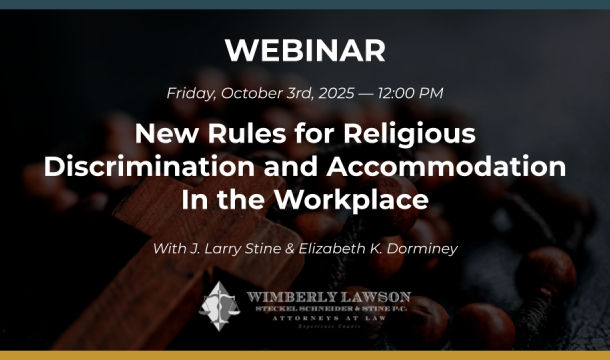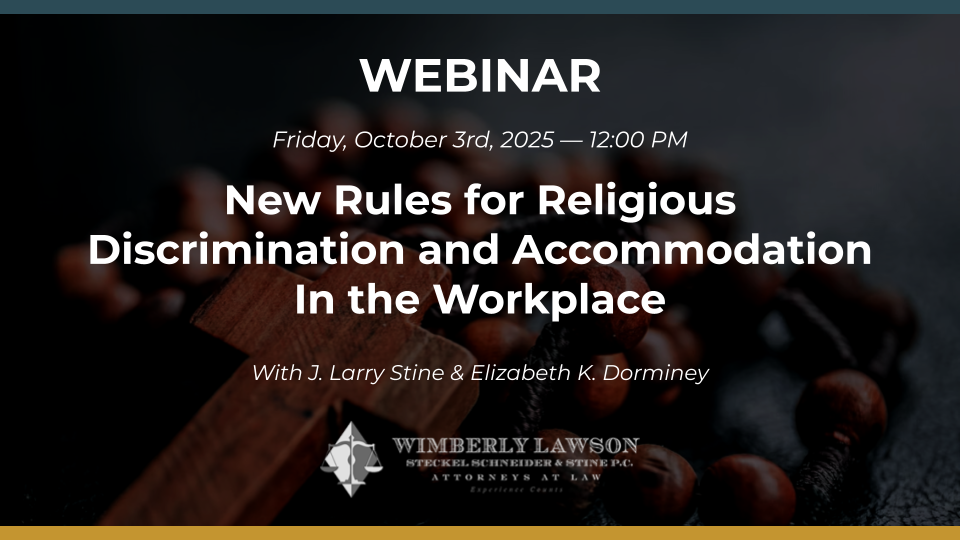By all accounts, the number of COVID-19 infections (and deaths) are on the rise and are likely to increase even more after Thanksgiving. At the same time, there is a great political divide as to how seriously folks take the virus. Politics aside, what are some of the potential costs to your business if you fail to take COVID-19 seriously?
As an initial matter, when I talk about taking COVID-19 seriously, I mean that your business is following CDC guidelines, which provides strategies and recommendations for employers responding to COVID-19, which include disinfecting, hand washing, social distancing, and the wearing of masks. Employers should also be familiar with OSHA guidance, which focuses on jobs classified as having low, medium, high, and very high exposure risks, and provides specific recommendations for employers and workers within specific risk categories.
So what are some of the potential business consequences of failing to take COVID-19 seriously?
WorkerAbsenteeism. If workers are not protected from exposure to the virus, they are more likely to get sick, and if they get sick, they cannot come to work. Worst case scenario–one sick worker infects a number of co-workers because no one is taking precautions in the workplace to avoid the spread of the virus, and now you have a number of employees who cannot come to work. Or an exposed worker then exposes his/her family, and they must stay home to care for a sick child. Or maybe a worker is afraid to come to work because they are immunocompromised or live with someone who is immunocompromised. How will you run your business if you don’t have enough people coming to work?
OSHA inspection. If any of your employees believe that you are not taking the necessary precautions to protect them from exposure to COVID-19, they can call OSHA and make a complaint against your business. A federal OSHA inspector may show up at your business to conduct an inspection. They will want to see evidence of your compliance with the OSHA laws, regulations, and guidance. Oh, and during the inspection, if they see something that is unsafe, even though completely unrelated to the initial complaint, they can cite you for it. If you can’t show compliance, you may receive a citation and fine. [And remember: you cannot, and should not, retaliate against any employee for making a complaint to OSHA.]
Employee turnover. Once the pandemic is over, your employees are going to remember how they were treated during the pandemic. Did you listen to their concerns? Or were you dismissive of them? When the economy stabilizes and the job market opens up, the employees who felt like the company did not care about their safety are going to look around for other opportunities. And what do you think those departing employees going to say about your business on job hunting sites?
Union organizing. Less likely, but still within the realm of possibilities. When employees feel like management is not listening to them, or does not care about their safety, they may reach out to a third party, such as a union, to act on their behalf. Do you really want union organizers sniffing around your employees?
Lawsuits. The least of your concerns, actually. While it is extremely difficult to pinpoint where a person was exposed to COVID-19, that is not going to stop enterprising lawyers from filing lawsuits against businesses to see if they can scare up a quick settlement Some states, such as Georgia, have enacted statutes that provide immunity from liability for COVID-19 exposure, which makes it even less likely that a lawsuit will be successful.
Adverse publicity. If your business is open to the public, you can count on members of the public to post something on social media about your compliance (or lack thereof) with COVID precautions or local orders. With photos. Do you want to be that business?
Look, we are all tired of COVID-19. Heck, I’m tired of writing about it. But until there is a reliable vaccine, it’s not going away, so we all need to do what we can to minimize the spread.

Kathleen J. Jennings is a former principal in the Atlanta office of Wimberly, Lawson, Steckel, Schneider, & Stine, P.C. She defends employers in employment matters, such as sexual harassment, discrimination, Wage and Hour, OSHA, restrictive covenants, and other employment litigation and provides training and counseling to employers in employment matters.
Related Content
Get Email Updates
Recent Content

Trump Nominates Appointments to NLRB and EEOC but Policy Changes Likely to Be Delayed

DOL Launches Self-Audit Programs Designed to Help Employers Improve Compliance

DOL Must Release EEO-1 Reports to the Public under Open Records Laws

Current Advice on Active-Shooter Situations

New Policy for Federal Workers and Religious Expressions




